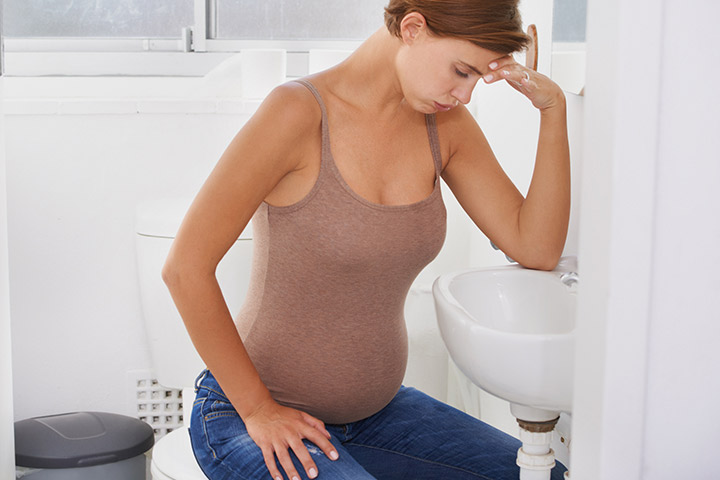
Image: iStock
Pregnancy is often related to having a bigger appetite than usual- eating icecreams, pickles, peanut butter, and what not. And, we know pregnancy craving is a real thing. You can eat more than you normally do with the excuse of ‘eating for two.’ Nobody is going to give you or your jar of cookies a side eye because you are ‘allowed.’ But being pregnant can also come with a loss of appetite for some women, especially in the first trimester (1). Read our post to know more about the loss of appetite and weight loss during pregnancy.
Eating healthy is crucial when you are pregnant. You cannot compromise on your diet during this time as you have a life growing inside you. Your baby absorbs all the nutrients they need from you. So it all comes down to the food you eat and how much you eat when you are pregnant.
What Causes Loss Of Appetite During Pregnancy?
Women who deal with morning sickness in their first trimester will have a hard time putting on some weight (2). Unfortunately, it affects about 50 percent of pregnant women (3). Nausea and vomiting are one of the early signs of pregnancy. It can continue through your entire first trimester and even longer (4).
What causes morning sickness? Pregnancy hormones are associated with morning sickness as they both seem to peak at the same time (5). Pregnancy hormones are produced during the process of implantation. However, how it constitutes to nausea and vomiting is not clear. Other factors might be estrogen, having a sensitive stomach, and feeling stressed and exhausted during pregnancy.
Is it a warning sign for something else? Worry not, most doctors believe morning sickness to be a healthy indicator of pregnancy. It means a well-developing placenta (6).
How To Manage Morning Sickness And Meet Nutritional Needs
Each woman is different, and so is her pregnancy. If morning sickness is hindering you from gaining any weight as you cannot put your put down or if the constant feeling of being nauseous is giving you a lower appetite, you need to make some changes. Here are a few tips that can help you in managing your morning sickness (7):
- Stay away from smells and foods that make you nauseous. Foods which were your favorite once can now trigger nausea in you. Avoid those kinds of foods completely, and instead, opt for foods that you can stomach.
- Eat smaller frequent meals. Shift to eating smaller meals throughout the day rather than eating 3 big meals.
- Keeping some soda crackers near your bedside table will help. This way, you can eat a couple of them in the morning before you get out of bed. Don’t get up in a jiffy, give yourself some time for digestion and slowly rise.
- Substitute creamy and rich foods with plain, dry ones. For example, go for a dry toast instead of slathering it with butter or cheese.
- Open the doors and windows in the room you are in. Well ventilated rooms will help you in breathing better and getting some fresh air.
- It’s important to take your prenatal vitamins to fill up the nutritional gaps. But also talk to your doctor about the vitamins you are taking as excessive iron supplements may induce nausea.
- Make a glass of lemonade or ginger ale to combat nausea. You can also try sniffing them as it can help too.
- Drink plenty of fluids to stay hydrated. If you are vomiting, your body is losing more water content. So, drink up!
Your baby does not require that many calories during the early stages of pregnancy. So losing a few calories during the beginning of your pregnancy can be fine. But if your weight gain is not steady after that, there are other risks that can follow such as the low birth rate or premature baby. You are also at risk of delivering a malnourished baby if your weight gain is not more than 20 pounds (8).
So, it is important to gain a steady weight throughout your pregnancy period to provide your baby with a daily dose of nutrients they need. However, remember that it is normal for your weight to fluctuate every week. But if you observe a drastic loss of weight in your third trimester, consult your doctor immediately (9).
If you have a severe case of nausea and vomiting, and the above remedies don’t offer you any relief, consult your doctor right away. Eating might seem like a burden to you now. But know that you are doing it for a healthy thriving baby.














